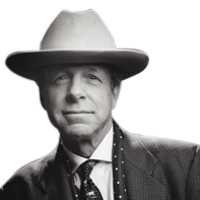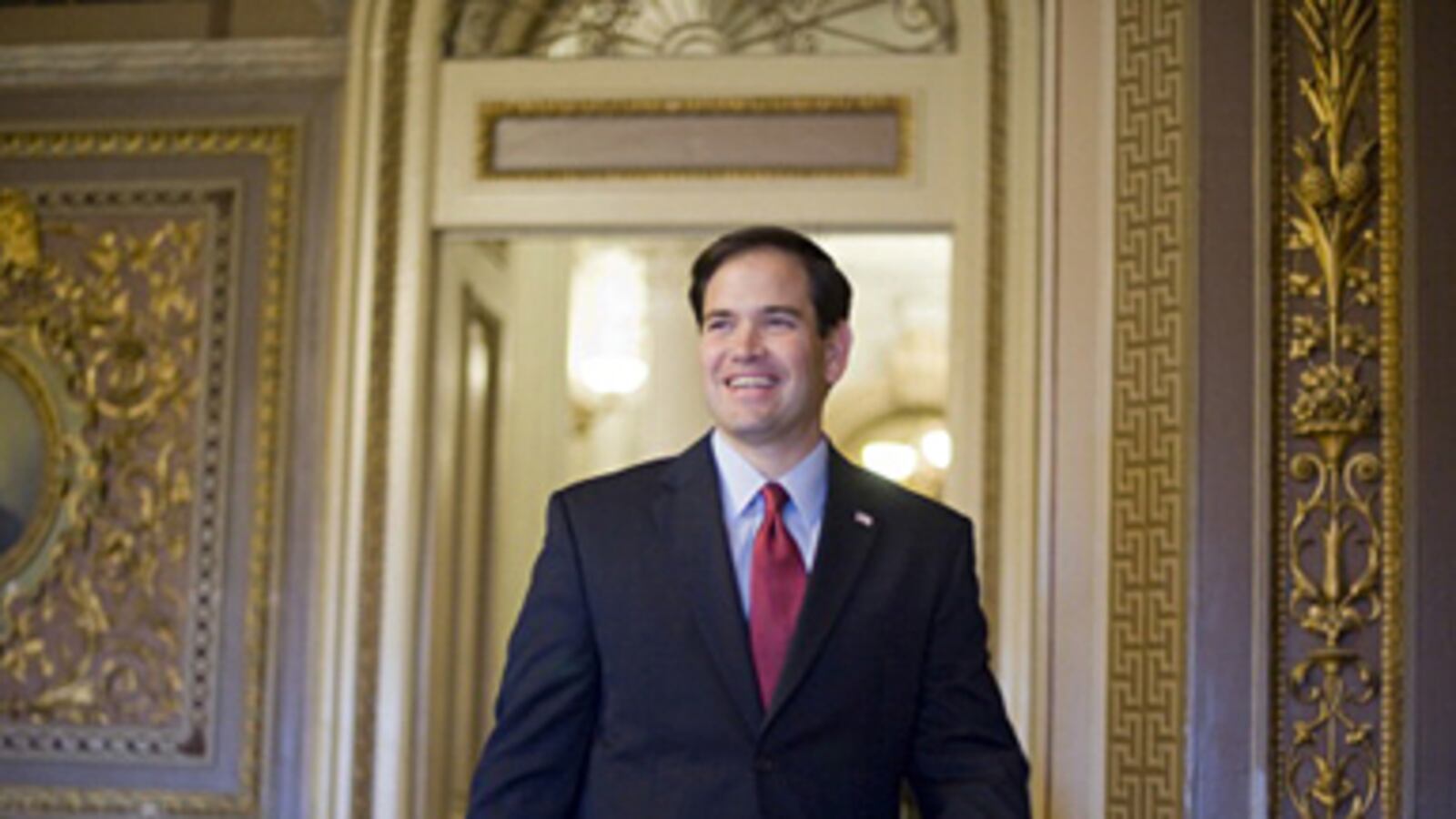The GOP field for the 2012 presidential race is more wide open than any we’ve seen in a very long time. With at least a dozen starters, including a few thoroughbreds, a mudder or two, and even a filly, the odds are all across the board. About 23 months out from Election Day, there is not yet a sure bet for the Republican nomination for president. But I think it’s very clear who will be the favorite for the vice-presidential pick: Marco Rubio.
Think about it. If anyone other than the former Alaska Gov. Sarah Palin gets the Republican nod for the top spot, it’s a no-brainer to pick Senator-elect Marco Rubio of Florida as the VP on the ticket.
Look at all the boxes he would check:
• A Tea Party favorite • And a young, fresh face • With a solid conservative record • From the critical state of Florida • He has a compelling American story • And a rationale greater than himself for running, and for governing • He appeals to the base • He appeals to younger (and older) voters • And he attracts Hispanic voters
If Palin chooses to run and is not the presidential nominee, Rubio fixes what will certainly be the “ Palin problem” for the GOP. With her unmatched magnetic appeal, which attracts headlines as well as campaign donations, there will be enormous pressure on whomever is nominated for president to pick Palin as a running mate. The only other option that provides any real conservative cover for a VP pick is Rubio. Otherwise, you will have a grassroots riot on your hands.
Rubio could be the Republican Party’s best hope to shape the future in a way that expands the big tent. In the presidential campaigns of 2000 and 2004, we were acutely aware of how important Hispanic support was. While George W. Bush received 40 percent of the Hispanic vote in 2000, to be reelected we knew we had to increase that share due to growing demographics. And we did. By three more percentage points. But in 2008, Sen. John McCain attracted only 29 percent in his presidential bid. For Republicans to regain the Oval Office in 2012, the GOP share of the Hispanic vote has to be north of 40 percent.
But that’s just my “shallow media guy” political assessment.
To look narrowly at Rubio and see only his ethnicity is to miss the depth of his character, his convictions, and his accomplishments.

Rubio could be the Republican Party’s best hope to shape the future in a way that expands the big tent.
With a warm, easy, and uplifting rhetorical style, the 39-year-young conservative is this generation’s John F. Kennedy, though from a decidedly different neighborhood. Born not of the privileges of wealth, but of the privilege of being “ a citizen of the single greatest nation on earth,” Rubio is the son of hardworking Cuban exiles. A father of four, he and his wife live in a working-class neighborhood just four blocks from where his parents lived.
As a state representative, Rubio served eight years and authored “ 100 Innovative Ideas for Florida’s Future.” All 100 ideas were passed by the Florida House. Fifty-seven became law. Initially passed over by the National Republican Senate Campaign Committee in the primary run, Rubio did not cry out about being entitled to the endorsement, he merely worked harder. And won. Decisively. In a three-way race. Winning 49 percent of the overall vote, 50 percent of the 65-and-over vote, and 55 percent of the Hispanic vote.
Bright and outspoken, Rubio offers concrete ideas to expand the economy, cut spending, reduce health-care costs, improve education, secure the border, and defend American values. A champion of conservatism, he is proof that the GOP message of economic opportunity rather than government dependency resonates across artificial demographic lines.
Though he’s not yet seated in the Senate, Rubio has demonstrated bold and independent leadership. During the election, he took brave policy stands, such as advocating an increase in the eligibility age for Social Security benefits. In Florida, no less, with the highest percentage of citizens 65 years of age and over.
His Election Night acceptance speech was a mature, sober call for Republicans. “We make a grave mistake if we believe that tonight these results are somehow an embrace of the Republican Party,” he said. “What they are is a second chance. A second chance for Republicans to be what they said they were going to be not so long ago.”
Inspired by his father’s American dream, Marco Rubio is the face of the future for the GOP, and the country.
“If only we are willing to do what the Americans that came before us did: to stand up and confront the great challenges of our time. To say as those who came before us said: that we will not leave our problems for our children unresolved. We will not allow them to inherit our debt and our mistakes. But rather that we will do whatever we must do to ensure that for them, life will be better than for us. That for them, our country will be better than the one we inherited. That tomorrow will be greater than today. That our history will surpass our heritage.”
I know talk of a VP nomination is the last thing Marco Rubio wants to hear right now. Todd Harris, one of his advisers, emailed me as I was writing this column. When I informed him of the content, he kicked and screamed in protest. My response: “You chose to saddle up on Secretariat.”
Some horses just gotta run.
As vice chairman of Public Strategies and president of Maverick Media, Mark McKinnon has helped meet strategic challenges for candidates, corporations and causes, including George W. Bush, John McCain, Governor Ann Richards, Charlie Wilson, Lance Armstrong, and Bono.





